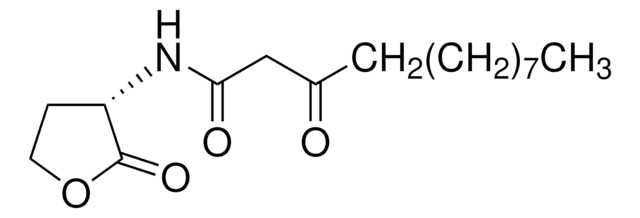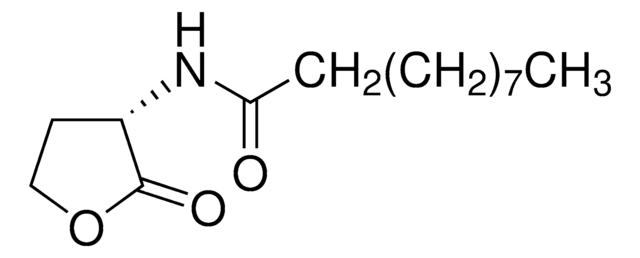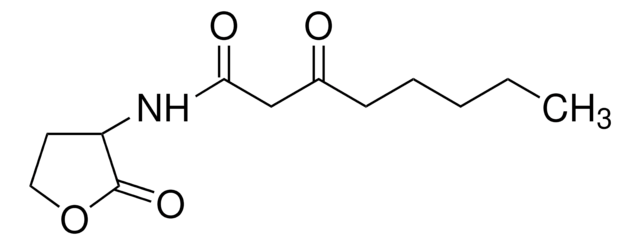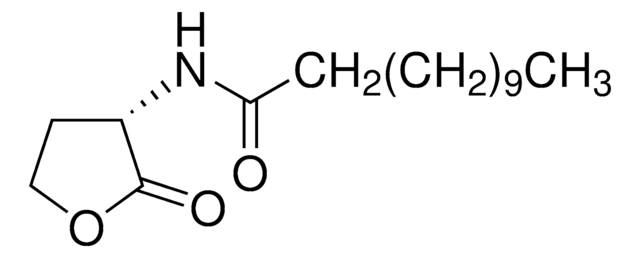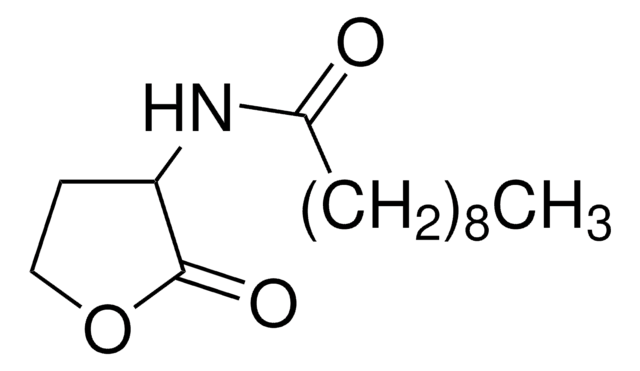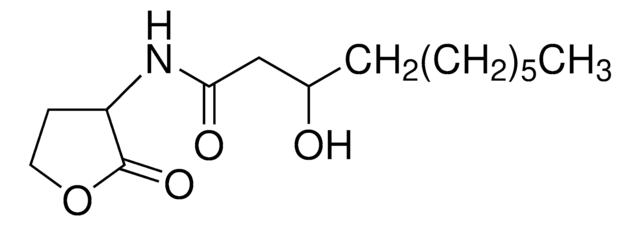O9014
N-(3-Oxodecanoyl)-L-homoserine lactone
≥98% (TLC)
Sinónimos:
3-Oxo-N-[(3s)-2-Oxotetrahydrofuran-3-Yl]decanamide
About This Item
Productos recomendados
Nombre del producto
N-(3-Oxodecanoyl)-L-homoserine lactone,
assay
≥98% (TLC)
Quality Level
form
powder
color
white
application(s)
cell analysis
shipped in
wet ice
storage temp.
−20°C
SMILES string
CCCCCCCC(=O)CC(=O)N[C@H]1CCOC1=O
InChI
1S/C14H23NO4/c1-2-3-4-5-6-7-11(16)10-13(17)15-12-8-9-19-14(12)18/h12H,2-10H2,1H3,(H,15,17)/t12-/m0/s1
InChI key
KYGIKEQVUKTKRR-LBPRGKRZSA-N
Categorías relacionadas
General description
Application
Biochem/physiol Actions
Storage Class
11 - Combustible Solids
wgk_germany
WGK 3
flash_point_f
Not applicable
flash_point_c
Not applicable
ppe
Eyeshields, Gloves, type N95 (US)
Elija entre una de las versiones más recientes:
Certificados de análisis (COA)
¿No ve la versión correcta?
Si necesita una versión concreta, puede buscar un certificado específico por el número de lote.
¿Ya tiene este producto?
Encuentre la documentación para los productos que ha comprado recientemente en la Biblioteca de documentos.
Los clientes también vieron
Nuestro equipo de científicos tiene experiencia en todas las áreas de investigación: Ciencias de la vida, Ciencia de los materiales, Síntesis química, Cromatografía, Analítica y muchas otras.
Póngase en contacto con el Servicio técnico
